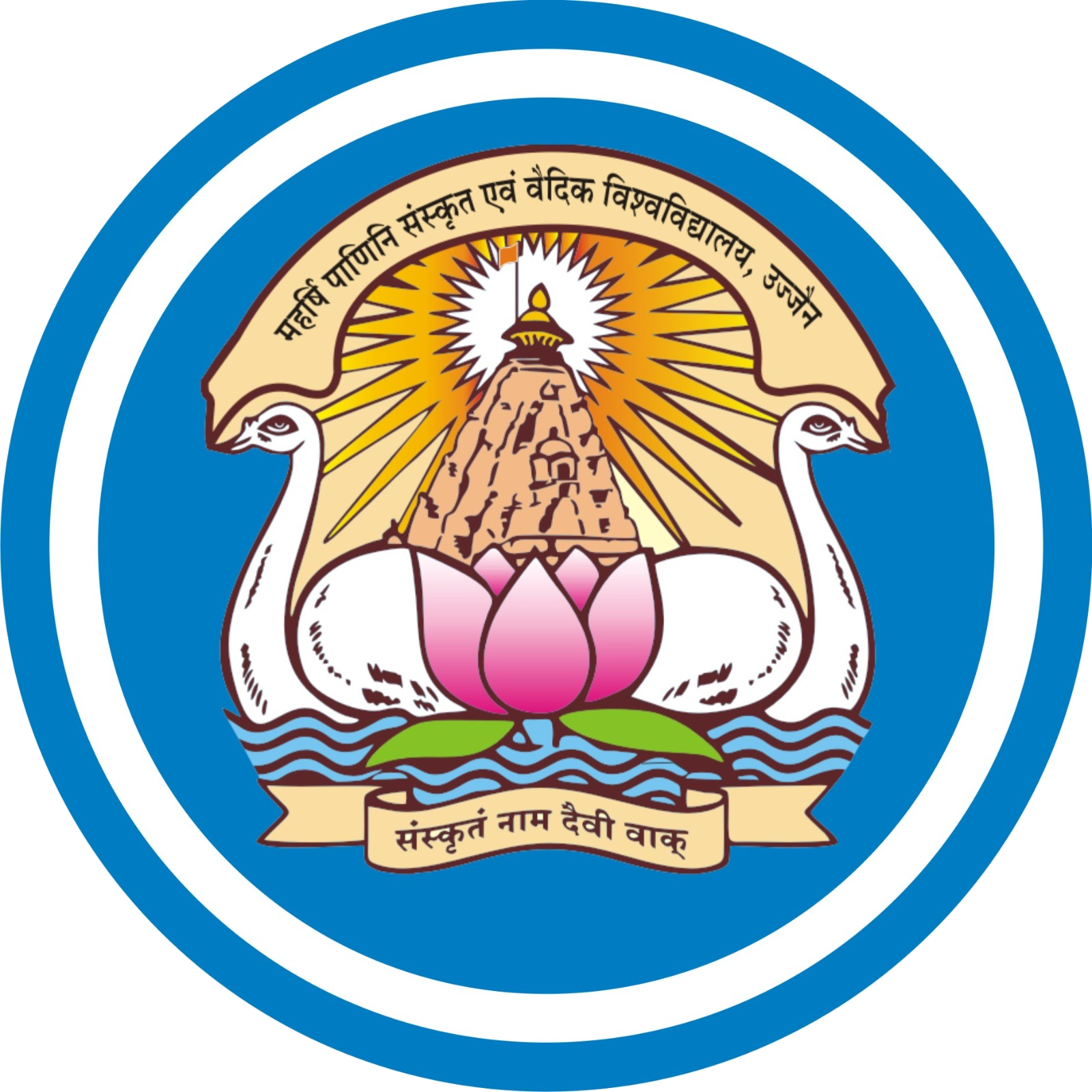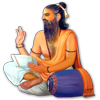
The Darshan Department of the university studies the message of sages for the spiritual enlightenment of one and all. The study of the classical text of Darshan (philosophy) together with a comparative perspective is the need of the hour. Keeping all this in mind, courses in Darshan are being offered where the students study the classical text of Patanjali, Kapil Muni, Gautam, Sri Shankaracharya, etc. Classes of Darshan are conducted by eminent and profound scholars which make the subject all the more interesting and easy.
Advaita Vedanta
When the conventional universities teach Indian philosophy mostly in general terms, ‘Maharshi Panini Sanskrit Evam Vedic Vishwavidyalaya offers a more focused and in-depth study of Advaita Vedānta, a popular system of thought in Indian Philosophy, focusing on the original Sanskrit Advaita works.
Advaita Vedānta or absolute Non-dualism is an idealist system of monistic thought that identifies the Supreme soul with the individual soul, expounded by Śankara, the great Indian philosopher. It constitutes to be an integral part of the rich heritage of India.
The central theme of Advaita Vedānta may be summarized this way – Brahman alone is real; everything else is unreal, mithyā, super imposed on the Brahman. The world is not real since it is a projection of the unreal ‘māyā’. It is however, real enough for practical purposes.
The Department of Advaita Vedānta offers a rich syllabus for the students consisting of Upaniṣad, Brahmasūtra and other texts of a higher level of knowledge.
Nyaya
Students studying this subject primarily study the early texts of Prachina Nyaya and Vaisheshika. The first text of Prachina Nyaya is "Nyaya-sutra". Its author is Maharishi Gautama. This book is also known as Anvikshiki, Nyayavidya, Nyayadarshan, Nyayashastra and Tarkashastra. In this philosophy, sixteen substances or elements have been considered and discussed - Pramana, Prameya, sanshaya, prayojana, drishtanta, siddhanta, avayava, tarka, nirnaya, vada, jalpa, vitanda, hetvabhasa, chala, jaati and nigrahasthana.
Vaisheshika Darshan - Kanaada Darshan, also known as Alukya-Darshan. The first text of Vaisheshika Darshan is Vaisheshikasutram. Maharishi Kanaada is the author of this book. Seven substances have been considered in the philosophy - dravya, guna, karma, samanya, vishesha, samavaya and abhava. The detailed explanation of these seven substances is in this text.
Students studying this subject primarily study "Tattva-Chintamani". This is the first volume of innovation. Its author is Acharya Gangesh Upadhyaya. This is basically based on Navya Nyaya and Nyayasutra. Sixteen substances like Pramana, Prameya etc of the Nyayasutra have been discussed in a specific language and style in this book.
The style of Language includes Prakarata, Visheshyata, sansargata, pratiyogita, anuyogita, avacchedakata, avacchedyata, nirupakata, nirupyata, karanata, karyata, pratibandhakata, pratibadhyata, adhikaranata, adheyata, vyapyata, vyapakata, vishayata, vishayita etc.
The language of Navya Nyaya made by these words are very useful in explaining the subjects scholarly to the subtlest secrets. Hence all the later critics have adopted the language of Navya Nyaya to explain the subtle detail of the subject in all of their texts. Experts have considered this language as most useful for computers.
In this way, through the study of Navya Nyaya, we are able to understand the most intriguing mysteries of philosophy and even the subjects like grammar, astrology, literature etc.
Motto
॥तत्त्वमसि॥ (छान्दोग्योपनिषत् - ६.८.७)
(That Brahman is You)
Vision
॥कुर्वन्नेवेह कर्माणि जिजीविषेच्छतं समाः॥ (ईशोपनिषत् - २)
(We have to spend a hundred years doing good work)
- Worldwide publicity and dissemination of Indian Knowledge Systems.
- Promotion of Indian Culture on a global scale.
- Highlighting the scientific thought processes of Indian Gurus.
- Establishment and recognition of India's intellectual heritage globally.
Mission
॥द्वे विद्ये वेदितव्ये परा चैवापरा चेति॥ (मुण्डकोपनिषत् - १.१.४)
(Paravidya and Aparavidya - This is how knowledge should be acquired)
- Study of philosophical subjects based on Indian knowledge traditions.
- Integration of interdisciplinary subjects with Indian philosophy.
- Emphasis on experimentation and continuous exploration.
- Encouragement of innovative approaches in knowledge and learning.
Objectives
- Overall development of students.
- To make the students understand the original meaning of Vedic Mantras.
- To understand the real nature of Yagya.
- Inculcate good moral values among students.
- To make the students aware of the great tradition contained in grammar.
- Acquaint the students with the scientific knowledge of grammar.
Uniqueness of Department
- Work in collaboration with other departments.
- Skill based learning through spoken classes, vagvardhini, seminars, workshops, viva-voice etc.
- Program revised as per the syllabus of competitive exams such as Net Slet Cte etc.
- Subjects cater to the needs of developing citizen.
Contact Details
Head Of the Department - Dr. Akhilesh Kumar Dwivedi (Phone No. = +91 8982314123)
Faculty of Nyaya - Dr. Sandip Sharma (Phone No. = +91 8120309220)
Faculty of Advaita Vedanta - Dr. Saibal Acharya (Phone No. = +91 9875366501)
Departmental Email ID -







